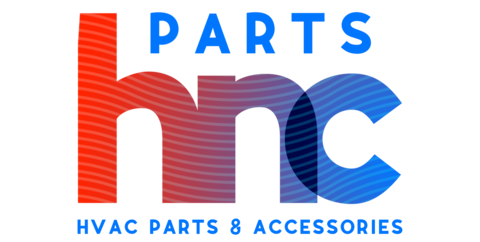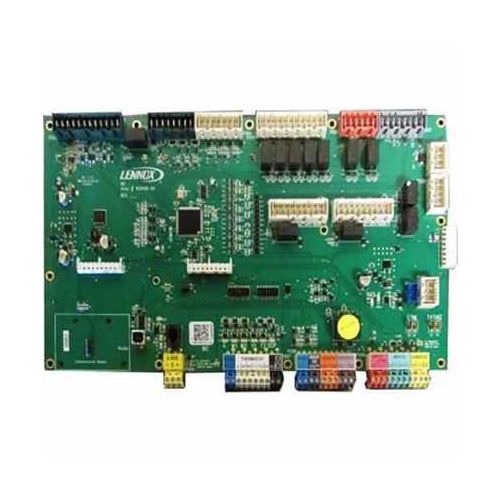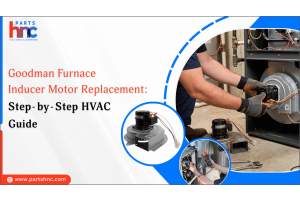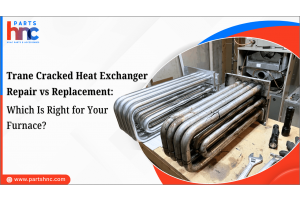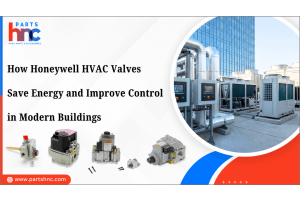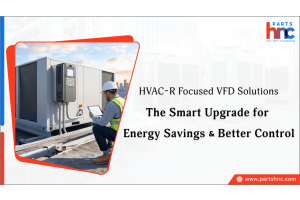How to Avoid Common Air Handler Maintenance Mistakes and Keep Your System Running Smoothly
Air handlers are essential components in maintaining your HVAC system, as they allow the efficient circulation of warm or cool air within your residence or commercial space. Consistent maintenance is necessary for prolonging the longevity of your system, enhancing air quality, and ensuring energy efficiency. However, homeowners and property managers might neglect or improperly fail to identify some issues of air handler maintenance. In this article, we'll discuss common air handler maintenance mistakes and provide important tips on how to prevent the
Neglecting Air Filter Replacement: How It Can Harm Your Air Handler and How to Prevent It
Regular air filter replacement stands as one of the primary maintenance errors homeowners make. Your home receives purified air circulation because air filters capture dust particles and dirt along with pollutants. Your system performs more strenuously when filters become blocked from regular use.
How to Avoid It:
-
Check the filter monthly: Regular monthly filter checks help you identify when replacement becomes necessary even if replacement is not needed monthly.
-
Replace every 3-6 months: The replacement period should be every 3-6 months but you should change filters sooner if you have pets or live in a dusty area or have respiratory issues.
-
Choose the right filter: Use the appropriate filter according to manufacturer recommendations for your air handler system.
At PartsHnC, we offer a wide range of premium HVAC components from thermostats, compressors, and evaporator coils from trusted brands like Trane, Carrier, DiversiTech, Lennox, York, and Emerson. Whether you're repairing or upgrading your system, we provide reliable parts to keep your air handler running smoothly.
Ignoring the Coils and Drain Lines Can Harm Your Air Handler
Air handlers need their evaporator coils together with their condensate drain lines to perform proper cooling functions and avoid water accumulation. Faulty coils alongside drain line blockage result in operational performance reduction and lead to both water damage concerns and expensive maintenance costs.
-
Clean the coils regularly: Evaporator coil efficiency can be maintained by conducting regular cleaning operations. Yearly cleaning operations help systems operate at their best efficiency levels.
-
Inspect the drain line: A blocked condensate drain line will result in water leakage and mold growth. The results of regular inspections protect drainage which prevents expensive system damages from occurring.
-
Use coil cleaner: Special coil cleaners provide effective dirt and grime removal for coils without causing any damage. The efficiency of your air handler remains high and its lifespan increases through this maintenance.
Also read on: Revolutionizing Indoor Air Quality: The Role Of HEPA Filters In HVAC Systems
Overlooking the Blower Fan: Its Impact on Your Air Handler’s Efficiency
Your home receives its conditioned air distribution through the blower fan. The fan blades gradually collect dust debris and other materials which reduce their operational effectiveness.
-
Inspect the blower regularly: Regular inspection of the blower reveals that dust and debris on the fan blades restrict airflow and reduce efficiency. Checking the system at regular intervals promotes perfect functioning and maintains uninterrupted airflow.
-
Lubricate the fan motor: The blower motor requires lubrication to operate smoothly and prevent mechanical wear. Use the manufacturer-recommended schedule to apply lubrication to your system.
-
Ensure proper airflow: Insufficient airflow indicates that the fan requires attention because its bearings are worn or it is misaligned. The timely solution of these issues stops additional destruction and minimizes operational inefficiencies.
Forgetting to Check the Ductwork Can Lead to Energy Loss and Poor Airflow
Your air handler depends heavily on ductwork to maintain its operational efficiency. Your HVAC system loses effectiveness through leaky ducts which results in higher utility expenses.
-
Seal duct leaks:Check ductwork for visible holes and cracks and loose connections by applying sealant. Small leaks should be sealed with mastic sealant or foil-backed tape.
-
Insulate ducts properly: Proper duct insulation should be implemented in unconditioned spaces including attics and basements to stop temperature loss.
-
Schedule a professional inspection: Professional inspections should be scheduled every few years by experts to examine the ductwork condition.
Ignoring Strange Noises in Your Air Handler: How It Can Lead to Bigger Problems
The normal operating sounds from air handlers should be expected but any strange noises including grinding, squealing or banging could indicate system problems. Unattended sounds from air handlers will result in more serious problems in the future.
-
Listen for abnormal sounds: Whenever you detect unusual sounds such as rattling or squealing during air handler operation you should not dismiss them. A component that produces such noises could be loose or require lubrication.
-
Tighten loose parts: Regular inspections should focus on tightening all loose bolts and screws and other components which produce vibrations or rattling sounds.
-
Consult a professional: Still having issues regarding strange noise requires professional consultation from a licensed technician for diagnosis and resolution.
Improper Sizing or Installation: How It Affects Your Air Handler’s Performance
The installation of an improper air handler size installation leads to various system issues which result in inefficient heating and cooling alongside increased energy costs and possible system breakdowns. An air handler that does not match your space requirements will likely work harder than needed which decreases its lifespan.
-
Get the right size: The air handler needs to have the proper dimensions that match your home or building requirements. To determine the perfect system size your HVAC expert will perform a systematic load calculation.
-
Hire a professional for installation: Professional help is essential for air handler installation because untrained individuals should avoid this task. The installation process must be done correctly to avoid performance problems.
-
Check the manufacturer’s guidelines: Follow the manufacturer’s advice by placing the air handler properly while observing all instructions regarding airflow patterns and setup.
Incorrect Thermostat Settings: How They Can Overwork Your Air Handler
Sometimes, improper thermostat settings can lead to unnecessary strain on your air handler. Setting the thermostat too low in the winter or too high in the summer could cause the system to work harder than needed, leading to inefficiency.
-
Set the thermostat at optimal temperatures: In summer, set the thermostat to 78°F (25-26°C), and in winter, keep it around 68°F (20°C) for maximum energy efficiency.
-
Use a programmable thermostat: A smart or programmable thermostat allows you to control the temperature remotely and optimize settings based on your schedule.
-
Avoid extreme temperature settings: Sudden temperature changes can overwork your system. Gradual adjustments help maintain consistent airflow.
Overworking Your Air Handler During Extreme Weather: The Risk of Damage
When weather conditions become extremely hot, homeowners use air handlers beyond their capacity which causes the system to break down. Operating the unit beyond its capacity in extreme temperatures leads to decreased performance and higher chances of system failure. Your air handler needs scheduled rest periods.
-
Use a backup system when necessary: In extreme heat, a backup system with fans and space heaters should be used to avoid overloading your air handler. The backup system helps decrease system stress and improves operational efficiency.
-
Ensure proper insulation: Proper insulation stabilizes indoor temperatures so the air handler needs less effort to maintain comfort levels. The system uses less energy and experiences reduced wear.
-
Schedule off-season maintenance: Off-season maintenance scheduling allows your air handler to enter the upcoming extreme weather season in extreme conditions while avoiding unexpected breakdowns.
Check out: How to Overcome Summer Heat with Evaporative Cooling HVAC Systems
Skipping Professional Inspections Can Lead to Undetected Issues in Your Air Handler
Regular maintenance is important in keeping your system in good working condition with DIY methods, but you will need professional help for more complex issues. Regular professional inspections should be scheduled because unidentified problems may increase way more and worse with time.
-
Schedule annual inspections: Professional HVAC technicians should inspect your air handler at least once annually. Annual professional inspections help staff discover hidden issues and enable them to initiate thorough cleaning operations and maintenance duties.
-
Check for warranty requirements: Professional maintenance is essential to uphold warranty coverage because some warranties have specific requirements. Follow manufacturer guidelines prominently displayed inside the air handler unit.
The process of maintaining your air handler consists of two essential aims: it preserves efficiency at all times while avoiding repairs and it upholds both comfort and energy quality within your home. The lifespan of your HVAC system and air quality will improve when you avoid three main mistakes: neglecting air filter replacement, ignoring coil and drain line maintenance and not overworking the system during extreme weather conditions. A smooth functioning air handler depends on regular inspections, proper size selection and immediate repair work. Proactive maintenance will protect your air handler from future cost time waste and performance degradation throughout the year.
FAQs
What is the first thing you should do before shutting down an air handler to perform maintenance?
Before shutting down an air handler to perform maintenance, the first thing you should do is turn off the power to the unit to ensure safety and prevent electrical hazards.
Do air handlers have limit switches?
Limit switches are used for a variety of appliances and gadgets to not only save electricity but to keep you and your device safe. The limit switch on your air conditioning system is the link between the blower on your air handler and the thermostat.
What is a safe T switch on an air handler?
Safe T Switch detects clogged A/C condensate drains and shuts off the system to prevent water damage to floors, walls, and ceilings.
What is the purpose of a damper in an air handler?
An HVAC damper is a small valve or plate that regulates the airflow inside a building's heating, ventilation, and air conditioning (HVAC) system.
 Loyalty Program
Loyalty Program